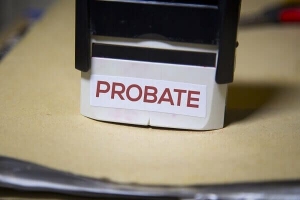
The probate process is fundamental to estate administration in Florida. When a person dies – with or without a will – probate is required in order to distribute his or her assets and do everything else that is necessary in order to formally close his or her estate. There are two primary types of probate in Florida, “formal administration” and “summary administration,” and there is a third type, called “ancillary administration,” that is used when the decedent owned property in Florida but was not a Florida resident.
Given that probate is necessary to wind up a person’s final affairs and close his or her estate, what happens if you do not probate a will?
7 Potential Consequences of Failing to Probate a Will in Florida
Failing to probate a will in Florida can have a number of potential consequences. These consequences can impact the decedent’s personal representative, beneficiaries, and creditors, and they can be costly for the estate. While each individual family’s circumstances are unique, generally speaking, failing to probate a will in Florida can lead to some or all of the following:
1. The Personal Representative Can Face Personal Liability
If the personal representative of the estate is aware of his or her responsibility to initiate probate, then failing to do so could lead to personal legal liability. As discussed below, failing to probate an estate can lead to unnecessary liabilities for the estate, and this can translate to direct financial losses for the decedent’s heirs and beneficiaries. If the personal representative could (and should) have taken steps to prevent these losses but did not, then the personal representative could be held personally liable.
2. Titled Assets Will Not Be Transferred
Transferring ownership of a decedent’s titled assets (such as houses, cars, and boats) requires the initiation of probate. If no one takes the necessary steps to probate the decedent’s will, then these assets will remain titled in the decedent’s name. This can lead to a whole host of problems, from issues with taxes and registration to the inability to sell the assets at a later date.
3. Non-Titled Assets Will Not Be Legally Transferred
For certain types of assets, transferring ownership requires a transfer of legal title. This includes significant assets such as homes, automobiles, and boats. Generally, transferring title requires a signature from the owner; however, when the owner is deceased, this is not a possibility.
The way to address this issue is through probate. The probate process allows for the title to be transferred without the decedent’s signature and with court approval. Without probate, heirs, and beneficiaries who claim ownership of titled property can run into the same issues discussed above with regard to non-titled assets.
4. Creditors Will Continue to Have Claims against Estate Assets
Another key aspect of probate is that it provides finality with regard to creditor claims against the decedent’s estate. Provided that the personal representative provides adequate notice and handles all valid claims appropriately when probate closes, creditors lose the ability to collect from the estate or the estate’s beneficiaries. However, without probate, the estate remains open, and creditors can continue to seek payment for debts that the decedent occurred during his or her lifetime.
5. Heirs and Beneficiaries Will Not Know Which Assets They Are Entitled to Receive
Even setting aside more-complex issues such as legal ownership of property and the risk of creditors collecting from estate assets, failing to probate a will presents a very practical issue for the decedent’s heirs and beneficiaries as well: Who gets what? The will almost certainly provides instructions for how the decedent’s assets are to be distributed, and any assets that are not addressed in the will must be distributed according to the law of intestate succession — which also requires probate.
6. Taxes Will Not Be Paid
Until an estate has been fully probated, it is not possible to determine what taxes (if any) are owed. If the estate owes tax, failing to pay any and all applicable taxes when due can lead to interest, fines, and other penalties. For beneficiaries, certain types of ownership transfers can potentially trigger tax liability as well if they are not handled appropriately, and this is yet another reason why a will should be probated promptly in accordance with Florida law.
7. Disagreements and Legal Disputes May Arise
Finally, the failure to probate a will is almost certain to lead to disagreements among family members, and it has a high risk of leading to formal legal disputes as well. Without going through the probate process, no one will know which assets they are entitled to receive from their loved one’s estate, assets may unnecessarily be lost to creditor claims, and heirs and beneficiaries will lack the certainty they need to move on.
The “Small Estate” Exception to Florida’s Probate Requirement
While probate is generally required in Florida, there is one major exception. This is the exception for “small estates.” Under Section 735.301 of the Florida Statutes, if the decedent leaves behind the personal property with a net value of no more than $20,000 plus no more than two motor vehicles and a limited number of other assets as specified in Section 732.402, then probate is not required. However, the personal representative must still file an application for “disposition without administration” along with appropriate supporting documentation, and the probate court must approve the disposition in order to close the estate.
Speak with an Experienced Lawyer at Beller Law, P.L.
Do you have questions about the probate process in Florida? If so, we encourage you to schedule an appointment with one of our trusted lawyer. To request a confidential consultation at a time that is convenient for you, please call us directly or inquire online today.
